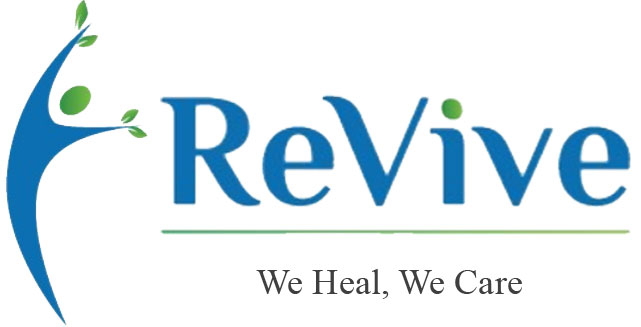+918042781392

This is your website preview.
Currently it only shows your basic business info. Start adding relevant business details such as description, images and products or services to gain your customers attention by using Boost 360 android app / iOS App / web portal.
Description
Anti-aging, acne, and pigmentation treatments are essential components of skincare for many individuals looking to maintain a youthful appearance, manage breakouts, and address skin discoloration. Here’s an overview of each category, including common causes, effective treatments, and preventive measures. Anti-Aging Treatments As we age, our skin undergoes changes that can lead to wrinkles, fine lines, loss of elasticity, and uneven skin tone. Here are some common causes and treatment options: Causes of Aging Skin Sun Damage: Prolonged sun exposure leads to photoaging, characterized by wrinkles and pigmentation. Loss of Collagen and Elastin: Natural aging processes reduce the skin’s firmness and elasticity. Dehydration: Lack of moisture can accentuate the appearance of fine lines. Genetics: Hereditary factors can influence the rate of aging. Treatment Options Topical Treatments: Retinoids: Vitamin A derivatives that promote cell turnover, improve texture, and reduce wrinkles. Peptides: Stimulate collagen production and enhance skin elasticity. Antioxidants: Ingredients like vitamin C and E protect the skin from oxidative stress and promote brightness. Procedural Treatments: Chemical Peels: Exfoliate the skin to remove dead skin cells and promote new cell growth. Microneedling: Involves creating tiny injuries in the skin to stimulate collagen production. Laser Therapy: Treatments such as fractional lasers can reduce wrinkles, fine lines, and uneven pigmentation. Injectables: Botox: Temporarily relaxes facial muscles to reduce the appearance of dynamic wrinkles. Dermal Fillers: Add volume to areas of the face that may have lost fullness due to aging. Acne Treatments Acne is a common skin condition that can occur at any age, characterized by the formation of pimples, blackheads, and cysts. Here’s an overview of its causes and treatment options: Causes of Acne Hormonal Changes: Fluctuations during puberty, menstruation, or hormonal disorders can trigger acne. Excess Sebum Production: Overactive oil glands can lead to clogged pores. Bacteria: The presence of Propionibacterium acnes bacteria can cause inflammation and pustule formation. Diet and Lifestyle: High-glycemic foods, dairy, and stress can also contribute to acne development. Treatment Options Topical Treatments: Benzoyl Peroxide: Reduces bacteria and inflammation and helps prevent clogged pores. Salicylic Acid: Exfoliates the skin and helps unclog pores. Retinoids: Promote cell turnover and prevent clogging of hair follicles. Oral Medications: Antibiotics: Help reduce bacteria and inflammation in moderate to severe cases. Hormonal Treatments: Birth control pills can regulate hormones and improve acne in women. Isotretinoin: A potent oral retinoid for severe acne that has not responded to other treatments. Procedural Treatments: Chemical Peels: Can help reduce acne scars and prevent future breakouts. Laser Treatments: Certain lasers can target acne-causing bacteria and reduce inflammation. Pigmentation Treatments Skin pigmentation issues, such as hyperpigmentation, melasma, and sunspots, can lead to an uneven skin tone. Understanding the causes and treatment options is crucial for effective management. Causes of Pigmentation Sun Exposure: UV rays stimulate melanin production, leading to sunspots and dark patches. Hormonal Changes: Conditions like melasma are often triggered by hormonal changes during pregnancy or with contraceptives. Post-Inflammatory Hyperpigmentation: Skin trauma from acne, injuries, or eczema can lead to dark spots. Treatment Options Topical Treatments: Hydroquinone: A skin-lightening agent that reduces melanin production. Kojic Acid: An alternative to hydroquinone that can lighten skin and even out tone. Vitamin C: An antioxidant that brightens the skin and inhibits melanin production. Procedural Treatments: Chemical Peels: Help exfoliate the top layer of skin and reduce pigmentation. Laser Therapy: Target specific pigmentation spots without affecting surrounding skin. Microdermabrasion: A non-invasive procedure that exfoliates the skin and improves texture and tone. Preventive Measures Sun Protection: Use broad-spectrum sunscreen with an SPF of 30 or higher daily to prevent sun damage and pigmentation. Healthy Skincare Routine: Cleanse, moisturize, and treat the skin according to individual needs. Hydration and Nutrition: Maintain hydration and consume a balanced diet rich in antioxidants and healthy fats for overall skin health. Avoid Picking: Refrain from picking at acne to prevent post-inflammatory hyperpigmentation.

 +918042781392
+918042781392